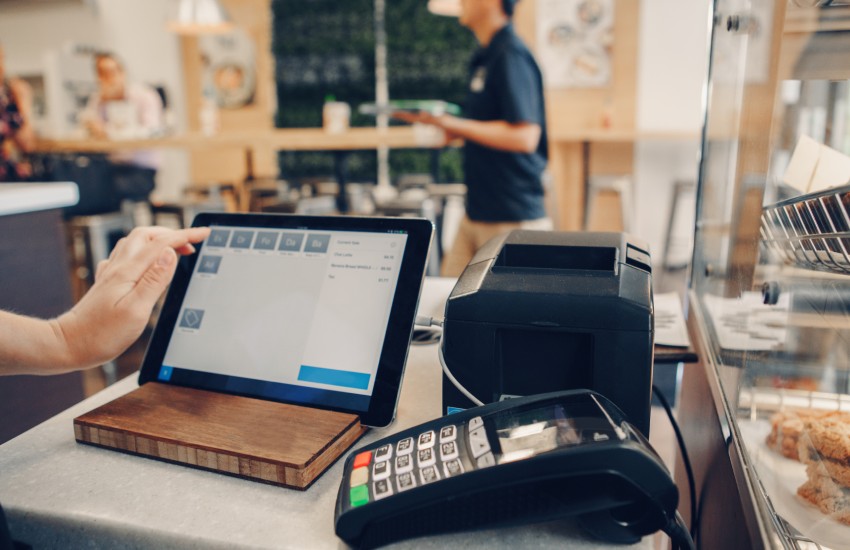What impact has the pandemic and lockdown had on the business economy?
26 June 2025
New Broker Academy 2025
Uncover a new world of opportunity at the New Broker Academy 2025If you’re ready for a career change and are looking...
KNOW MOREWhat impact has the pandemic and lockdown had on the business economy?

The Dext Business Health & Habits Report 2021, a study conducted by the accounting platform Dext, has sought to answer this question by looking at spending patterns of over a million customers around the world to determine the health and habits of firms during the last 18 months to see how they responded to the pandemic.
Included in this study is the Australia Business Spending Report that revealed that “overall, Australian businesses have shown increasing resilience throughout the pandemic”.
Using anonymised transactions, captured, submitted, categorised, and verified through the Dext expense management platform, researchers grouped data from Australian customers into three lockdown periods that took effect across the country to consider how spending habits have changed throughout the pandemic.
Lockdown 1 covers March to May 2020, Lockdown 2 covers June to October 2020, and Lockdown 3 covers June 2021.
Here’s what they found out mattered to Australian businesses during the pandemic:
The COVID pandemic struck small firms particularly badly. Smaller companies are twice as likely to be concerned as well as larger ones about surviving.
Following the announcement of lockdowns in Victoria and NSW in March 2020, average spending plummeted across practically every category, as it did in many other countries.
But by the middle of 2020, business outlook started to swing into gear. Spending increased beginning in July and had once again surpassed pre-pandemic levels by December.
For the vast majority of categories, the average transaction spend is now higher than it was before the outbreak levels, indicating a resurgence in business optimism.
Key industries
Accounting, finance, and insurance industries were off to a good start in 2020, but there was a sharp drop after the first lockdown. Every month between March and July 2020, average spending decreased by 32 per cent.
Advertising experienced the same trend, where spending dropped 23 per cent between April and May and remained below pre-pandemic levels until October 2020. It has since slightly risen and has stayed above its lowest levels for 2020. However, it’s still lower than pre-pandemic levels, showing that firms are not focused on growth in the face of continued uncertainty. The average advertising and marketing spend in Q1 2021 was down 9 per cent year-over-year.
Comparatively, digital advertising fared better than traditional advertising and, in fact, grew after each lockdown.
Property spending has been the most volatile, with lockdowns resulting in significant reductions in spending. It pivoted by November 2020 with a sharp lift of over 150 per cent.
While average spending on software and technology did fall 11 per cent between March and May 2020, it was able to bounce back beginning July and was steady for the rest of the year. Software investment also got more integrated in firms, with average spending up 22 per cent year-on-year in Q1 2021.
Zoom – the videoconference technology that surged in popularity as Australians moved to working from home – has seen incredible success. In Q1 2021, Zoom’s average spend increased by 27 per cent and spending increased by 43 per cent year-over-year as it fulfilled consumer demand.
Supplier spending
Suppliers are essential in business operations, and so the Dext research also looked into the spending data of suppliers Telstra, Metcash, and Symbion.
Between February and March 2020, Telstra’s spending decreased by 57 per cent. It has yet to recover to the same level. Spending in February 2021 was down 64 per cent year-over-year.
Symbion and Metcash had a different fate, having seen an increase in average spend following the initial March lockdown.
Metcash’s spending went up 31 per cent from March to April 2020. Spending was stable throughout the year before dramatically increasing in February and March 2021. Spending in March 2021 increased by 231 per cent year-over-year.
As firms invested in employee healthcare, Symbion’s average spend increased by 73 per cent from March to May 2020. Spending decreased by 57 per cent between May and June, but increased marginally after the second lockdown was announced in July. Spending increased by 33 per cent from June to August.
Dext’s spending behaviour looked at the transport, logistics and delivery industries that play vital roles on the side of suppliers.
After the initial lockdown, transportation spending dropped by 53 per cent, although levels remained stable ranging between $400 and 600 average spend per transaction. In August 2020, there was a dramatic increase in spending, with the average spend climbing 310 per cent to $3,576 before reverting to Lockdown 1 levels. Between December 2020 and January 2021, spending more than doubled, then fell back to its prior range in February, before rising again in April 2021.
Following the Christmas surge, logistics spending began slowly in Q1 2020, in line with seasonal averages. Despite solid growth in Q2 2020, the average spend remained consistent at $1,100-$1,500. In October, spending for 2020 reached a new high, with an average of $1,872. Logistics spending fell by 24 per cent year-over-year in December 2020. Spending increased in Q1 2021, with average quarterly revenues up 62 per cent over Q1 2020.
The study cited FedEx with a low average spend throughout 2020, including pre-pandemic, but experienced a phenomenal increase of 1,166 per cent in August.
While the pandemic may have caused havoc in Australia’s business economy, by altering their spending behaviours, many businesses were able to survive the worst of the lockdowns, which will hopefully enable them to get back on track through better times, and thrive in the future.
Comments will undergo moderation before they get published.
Uncover a new world of opportunity at the New Broker Academy 2025If you’re ready for a career change and are looking...
KNOW MOREGet breaking news
 Login
Login
